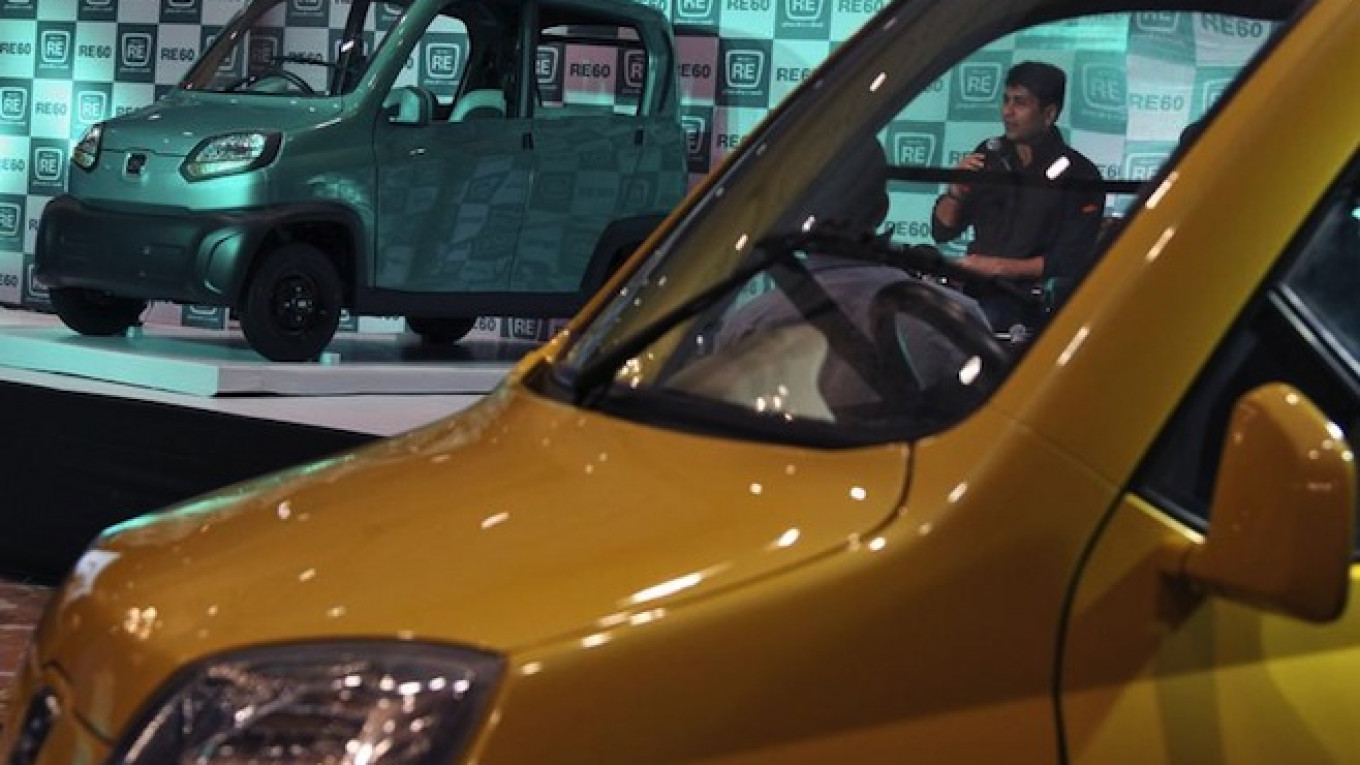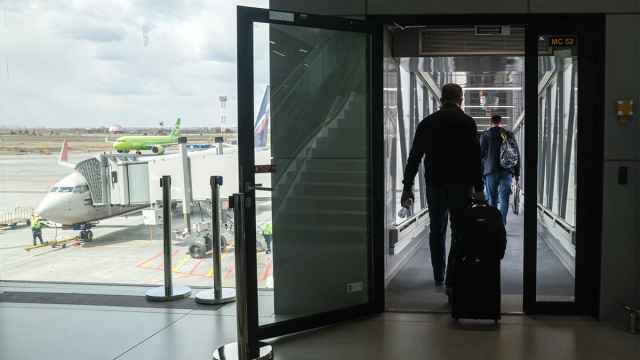From next spring, Russian drivers will be able to buy the world's cheapest car — the Indian Bajaj Qute, the RBC news agency reported.
Sales of the Qute will begin in March or April next year, once the vehicle is tested on Russia's winter roads, the general director of East West Motors, Bajaj's distributer in Russia, Alexander Alexeyev, told the agency.
Prices for the car, made by Indian motorcycle manufacturer Bajaj, will start at 250,000 rubles ($4,000), he said. The cheapest car currently available in Russia is China's Lifan Smily, which costs 320,000 rubles ($5,000), according to RBC.
The Qute is a single-cylinder four-seater with a 13.5 horsepower engine and a top speed of 70 kilometers per hour.
Its arrival on the Russian market comes amid growing demand for low-cost products as wages decline during an economic slump. A weaker ruble has also pushed up car prices by making imported vehicles and parts more expensive.
Car sales in Russia fell by 36 percent in the first half of the year compared to the same period in 2014, according to the Association of European Businesses, a Moscow-based lobby group that monitors the car market.
Russian still eager to buy a car mostly opt for cheaper vehicles costing less than $10,000, RBC reported earlier this year.
However, some experts doubted the popularity of the Indian Qute in Russia.
Cars with better functionality and comfort can be bought second hand for the same price, Sergei Udalov, executive director of Autostat, a car market researcher, told RBC.
East West Motors' Alexeyev said the Qute's low operating costs could make it useful for commercial tasks such as delivery services. But the company's sales projections are still modest: it plans to sell 200-300 Qutes in Russia next year, according to RBC.
A Message from The Moscow Times:
Dear readers,
We are facing unprecedented challenges. Russia's Prosecutor General's Office has designated The Moscow Times as an "undesirable" organization, criminalizing our work and putting our staff at risk of prosecution. This follows our earlier unjust labeling as a "foreign agent."
These actions are direct attempts to silence independent journalism in Russia. The authorities claim our work "discredits the decisions of the Russian leadership." We see things differently: we strive to provide accurate, unbiased reporting on Russia.
We, the journalists of The Moscow Times, refuse to be silenced. But to continue our work, we need your help.
Your support, no matter how small, makes a world of difference. If you can, please support us monthly starting from just $2. It's quick to set up, and every contribution makes a significant impact.
By supporting The Moscow Times, you're defending open, independent journalism in the face of repression. Thank you for standing with us.
Remind me later.






